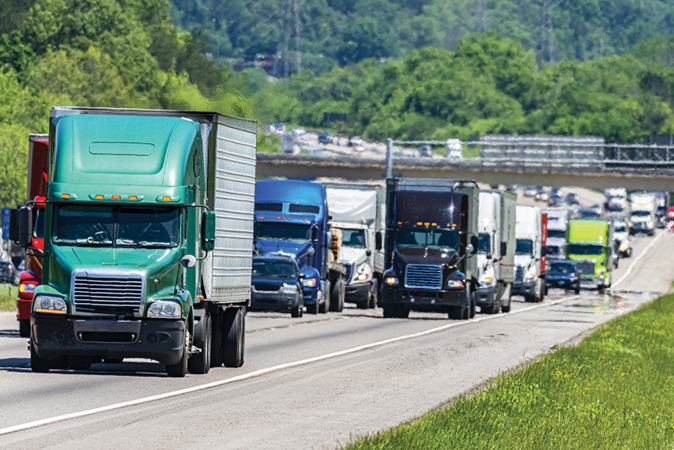|
By Amanda Hampton, Associate,
Nessle & Blakey
As Congress begins its planning efforts to pass the next surface transportation reauthorization in 2026, providing solvency to the Highway Trust Fund has already emerged as a top priority. The Congressional Budget Office (CBO) projects that the Highway Trust Fund will be exhausted by 2028, requiring congressional action to implement a solution in the next surface transportation reauthorization.
The Highway Trust Fund was established in 1956 to provide dedicated funding for the nation’s surface transportation system. Currently, the Highway Trust Fund is funded through a user-pay model collecting revenue from gasoline and diesel taxes. Contributions to the Highway Trust Fund have been declining in recent years as more roadway users transition to zero-emission or low-emission vehicles and certain states mandate the adoption of such technologies. Additionally, the federal taxes on gasoline and diesel have not kept pace with inflation as they remain unchanged since 1993. As a result, the Highway Trust Fund has experienced insolvency for many years, relying on transfers from the General Fund of the Treasury as congressional spending has exceeded revenues deposited every year since 2008.
During a recent House Committee on Transportation and Infrastructure Subcommittee on Highways and Transit hearing, Subcommittee Chair Rick Crawford (R-AR) questioned the sustainability of relying on transfers from the General Fund. He stressed that ensuring Highway Trust Fund solvency will be increasingly important in the coming years as freight movements increase and vehicle miles traveled (VMT) are expected to grow 22 percent by 2049.
The most recent surface transportation authorization, the Bipartisan Infrastructure Law (BIL), recognized this rising problem by requiring the U.S. Department of Transportation (USDOT) to establish a pilot program that would test the viability of a federal VMT fee. Under a federal VMT fee, roadway users would be charged based on the number of miles they travel. Lawmakers directed the pilot program to test the design, acceptance, deployment, and financial sustainability of a national VMT fee and develop recommendations for adopting and implementing the fee. While the BIL was enacted nearly two years ago, USDOT has not officially started the VMT pilot program.
|

However, the Federal Highway Administration (FHWA) initiated the first step by soliciting members to serve on the Federal System Funding Alternative Advisory Board – another BIL-mandated initiative that will guide the pilot program. The advisory board will develop recommendations related to the structure, scope, and methodology for developing and implementing the national VMT fee pilot program; assist with deploying a public awareness campaign; and help develop reports to Congress analyzing the pilot program.
FHWA is soliciting a range of members to be appointed for two-year terms with the potential for reappointment, including state departments of transportation officials, trucking industry representatives, data security experts, advocacy organizations focused on equity, motor vehicle fleet owners, toll facility owners and operators, and an entity that led a surface transportation system funding alternatives pilot project under the Fixing America’s Surface Transportation Act. Nominations are due by November 17.
Lawmakers and transportation stakeholders have suggested alternative solutions to provide long-term solvency for the Highway Trust Fund due to concerns related to the cost and privacy considerations associated with implementing a national VMT fee. Aside from continuing to rely on transfers from the General Fund, other solutions include raising gas taxes or establishing registration fees for electric vehicles. According to the CBO, Congress could raise $25 billion a year for the Highway Trust Fund by increasing fuel taxes by 15 cents per gallon. Earlier this year, Senator Debbie Fischer (R-NB) introduced the Stop EV Freeloading Act, which if passed, would establish a $550 fee on batteries weighing more than 1,000 pounds and a $1,000 fee on electric vehicles sold by the manufacturer, producer, or importer of the vehicle.
Nessle & Blakey, Ltd. is a public affairs and
communications consulting firm based in
Washington, DC.
|



